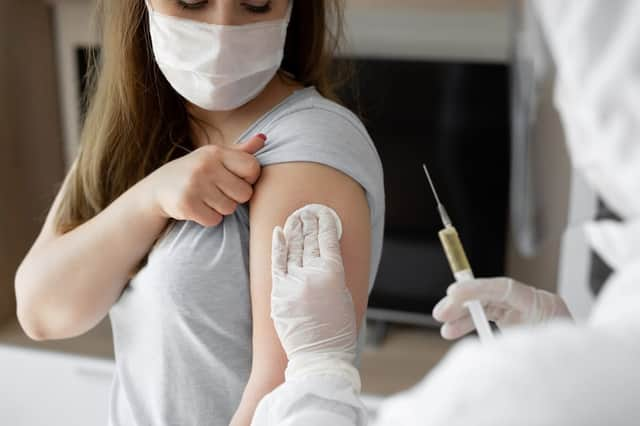Matt Hancock says the Covid jab 'doesn't work immediately' and that recipients must remain cautious


Health Secretary Matt Hancock has urged people to continue to be cautious after they have received a Covid vaccination, as it does not work immediately.
More than four million people in the UK have now received their first dose of the Covid-19 vaccine, but the Health Secretary has urged those who have received a dose of the vaccine to remain careful, as they can still catch the virus.
Advertisement
Hide AdAdvertisement
Hide AdMr Hancock said: “After you’ve been vaccinated, you can still catch coronavirus for several weeks and it’s really important that people know this.
“When people are vaccinated, they are told essentially the time that it takes and the limit of the effectiveness, especially in that early period, and told very clearly that you have to still follow the rules.
Continue to follow coronavirus rules and restrictions
In regards to continuing to follow coronavirus rules and restrictions after receiving the vaccine, the Health Secretary said that this remains vital.
He said: “That’s an important part of this, especially until we can measure the effectiveness of the vaccination programme on transmission. In fact, only yesterday I reviewed the communications that go to people when they’ve been vaccinated and they are very clear and robust.
Advertisement
Hide AdAdvertisement
Hide Ad“It’s important that everybody post-vaccination continues to follow those rules, both to bring the number of cases down because of the impact on transmission and also to protect themselves.”
“The vaccine is the way out but it doesn’t work immediately and people still need to be cautious,” Mr Hancock added.
At a Downing Street press conference on Monday (18 Jan), Mr Hancock said that the Government is on track to deliver its plan of vaccinating the most vulnerable groups by the middle of February, which include all care home residents and their carers, everyone aged 70 and over, all frontline health and social care workers, and the clinically extremely vulnerable.